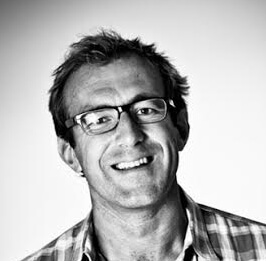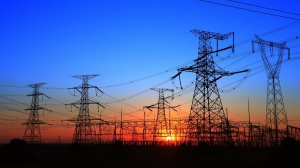Sleep is essential to rebuilding after periods of activity, but since the Industrial Revolution we've been doing it all wrong.
Sleep, Energy And Wellbeing - An Experiment
Sleep is essential to rebuilding after periods of activity, but since the Industrial Revolution we've been doing it all wrong.

Everything is Energy. Albert Einstein summed up life, earth, the universe and beyond so succinctly. Without energy, there is no existence. So, it makes sense that how we manage our personal energy is the key to our wellbeing.
We work round the globe with businesses helping them embed a human, energetic and creative working culture. Our training programmes, events and workshops are designed to boost people’s awareness, creativity and collaboration, as well as equip them with the tools to keep their internal fire burning bright.
Over the years, we have learnt a lot. However, we wanted to live energy every day. We decided to go on a year- long journey to explore how it affects us physically, mentally and spiritually with the help of monthly experiments set by experts.
We wanted to get the low down from the people who live and breathe energy from every angle. By trying out their methods we are hoping to establish a bespoke plan of how we can get the most out of our personal energy for life.
Our second stop on the energy journey was Sleep.
As human’s we need to sleep and most of us love it. However, lots of us struggle with waking feeling refreshed and ready to seize the day. Getting enough of our daily zzz’s is vital not only to our energy but to our survival.
Studies show that after 22 hours without sleep, human performance is impaired to the same level of that of someone who is legally drunk.
In any 24 hours, we ideally need 30% in recovery (asleep). However, unlike the other two human health pillars, exercise and nutrition, sleep has never been explored to the same levels and yet it demands the most of our time.
Without awareness, sleep can be a complex process. There are so many variables. We are all different in so many ways and adopt ongoing lifestyle and occupational choices that add to that complexity.
We enlisted the help of Nick Littlehales, a world renowned Elite Sports Sleep Recovery Coach for over 22 years. He explained how the key to unlocking this knowledge is to redefine your everyday approach to recovery.
A monophasic, 8-hour single period of nocturnal sleep was forced upon us by the Industrial Revolution. An approach which had never played a role in human recovery before that point.
Before the Industrial Revolution, humans always recovered sleep in a Polyphasic approach. Recovering in shorter periods more often because they were more aligned with the everyday Circadian Rhythms that remain with us today.
Our experiment was to move from Monophasic sleep towards Polyphasic sleep. A technique used by elite athletes and high achieving individuals globally as well as people in all walks of life.
This was the experiment set by Nick:
Step 1:
Identify with your Chronotype :
A lark morning type, AMer, feels most energised from Sunrise to Midday.
An Owl evening type, PMer, feels most energised from Midday to Evening.
Step 2:
Identify your natural most Consistent Wake Time (CWT) based on your Chronotype not occupation.
Example - 6.30am (AMer) is the most natural wake time (not based on when have to get up for work.)
Then break your 24-hour clock into 16 x 90-minute cycles (periods) from that 6:30am wake time. If your schedule means you need to be at work say at 7am then you would get up at 5am (90 mins before CWT.) Don’t worry you are thinking differently now and will make up the recovery time later!
Step 3: Thinking Polyphasic! Introduce a short break every 90mins. Aiming for a bigger one midday and early eve if possible.
First 90 minutes after waking and every 90 minutes thereafter. So, for the 6:30 CWT this could be, for example:
12:00 - 30 min sleep, rest, gentle walk, zone out or meditate.
And/Or
17:00 - 30 min sleep, rest, gentle walk, zone out or meditate.
Every 90 minutes there also could be a short break of say 5 mins to rest the brain.
When taking a break, put an alarm on so you might get 15-20 mins sleep within that time and are not worrying if time has gone over. Allocate the full 30 minutes if you can but at the very least 5 mins would be okay on day where it’s not feasible. If sleep is not available, walk, sit quietly or just zone out.
For the whole day for this example above, it would mean say 4 cycles of 90 min sleep at night and then with one rest during the day, that adds another cycle. (even if only rested for 30 mins or less). To total 5 cycles a day, 35 cycles a week.
Our learnings after the month varied according to the uniqueness of people’s lives:
· Men found it easier to prioritise napping and also found it easier to get to sleep quickly for a nap.
· Women opted more for a 5 minute ‘zone out’ which did help energy in terms of re-connecting with their body and feeling calm throughout the afternoon.
· It helped saved one person’s marriage! Living with an owl they always felt tired in an evening, a daily nap has helped evening energy levels.
· Overall when people did manage to get a 15 minute nap, it always left them feeling much more alert, refreshed and ready to take on the day. The energy boost also lasted into the next morning.
Key Takeaway – when we made a nap happen it transformed our energy levels. The secret is to change your perception over taking a nap and make it a priority whenever that space is available to you. At the very least, a 5 minute zone out every 90 mins is essential.
Rethink your approach to sleep and watch your energy fly.
Jim Lusty, trainer, speaker and partner uppingyourelvis.com.
Thanks for signing up to Minutehack alerts.
Brilliant editorials heading your way soon.
Okay, Thanks!


